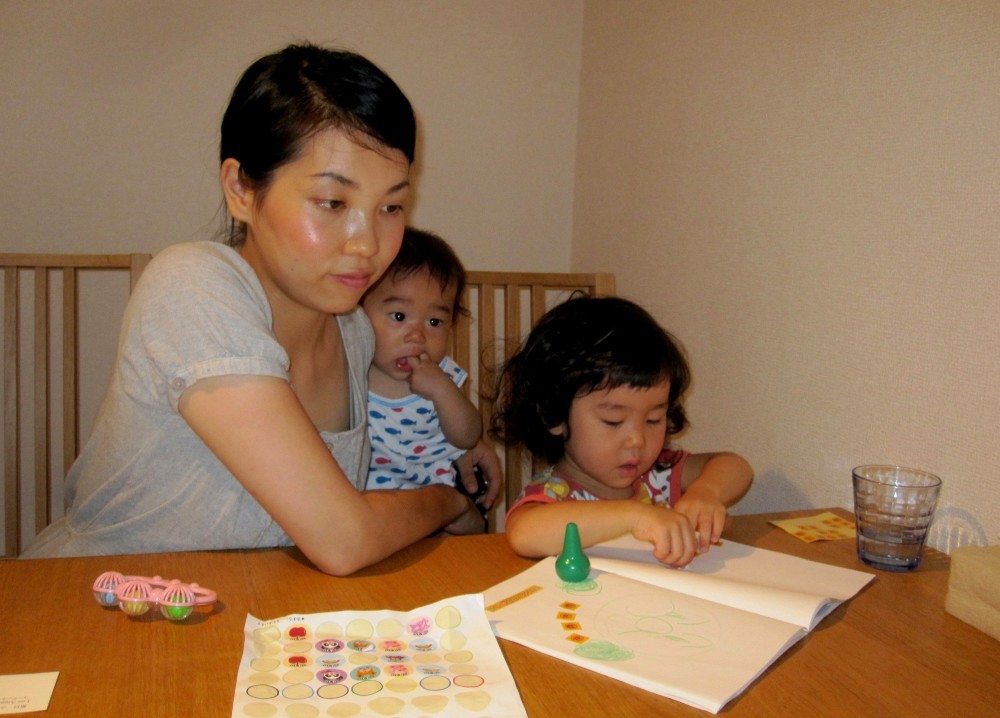By Chikara Shima
The Japan News, Tokyo / Asia News Network
WWR Article Summary (tl;dr) Would you take your child on a business trip if you knew you would have help caring for them? It’s a concept that is being experimented with in Japan where some parents are opting to take kids on the road.
The Japan News, Tokyo / Asia News Network
The idea behind company employees having their children tag along is to ensure they do not miss out on promotions or other career opportunities by turning down business trips due to child-rearing responsibilities.
This innovation provides working parents more options, although women and children might shoulder most of the burden.
Companies and workers are being urged to arrange business trips in this manner based on purpose and distance.
Enhancing career prospects
Taisei Corp. opened a temporary day-care center in early November at the Yokohama training facility for the children of parents taking part in a three-day training course. The course was for employees in their seventh year at the company.
The construction company entrusted a nursing care operator to look after five young children whose parents took part in the course.
One worker, Yumiko Taniguchi, 29, arrived in Tokyo from Sapporo with her 2-year-old son. They stayed at a hotel, but the boy was dropped off at the company’s day-care center, while his mother sat for the course.
“It was difficult to ask my husband or parents to take care of him while I’m away. The only reason I could attend the course was because the company offered the day-care service,” she said.
For Taniguchi, a field superintendent in the company’s construction sector, the training course not only was a prime opportunity to enhance her career prospects, but also helped her share information with colleagues from other parts of the country.
Initially, Taniguchi did not plan to attend the course because she would have to stay for three nights in Tokyo, but she changed her mind when she learned of the day-care service.
Taisei, headquartered in Shinjuku Ward, Tokyo, has permitted employees taking part in training sessions to bring their children along since the end of 2015.
“Some of our employees missed out on opportunities to participate in training courses because they had children,” said Tetsuya Shioiri, the company’s human resources division chief. “We should support these workers so they are not at a disadvantage with other workers.”
Together with husband
Procter & Gamble Japan offers subsidies of up to ¥100,000 annually per worker in need of extra funds to take care of children while on business trips.
In the summer of 2015, Kotone Ogawa, 28, who works in the company’s Tokyo branch, traveled with her 3-month-old daughter on a business trip to the firm’s headquarters in Kobe. Her husband accompanied Ogawa and looked after the baby during the four-day trip. The company covered the travel expenses and accommodation for the husband as well.
“I didn’t want to be away from my daughter for so long because she’s nursing. Thanks to the system, I could handle my work and still look after her,” Ogawa said.
The Child Care and Family Care Leave Law stipulates that companies are not permitted to have employees with preschool children work between 10 p.m. and 5 a.m., if the workers make such a request. For this reason, there is a deep-rooted idea within companies that it is preferable not to have workers with young children make overnight trips.
Mika Ikemoto, a senior researcher at the Japan Research Institute Ltd. who is knowledgeable about child-rearing support, said many people just assume they cannot make business trips if they have young children. “When companies permit their workers to make business trips with their children, it provides them with more options,” she said.
Responsibility for safety
Although most workers are generally ordered to make business trips, the employees have to take responsibility for the safety of their children while traveling to or working at their destination. In many cases, this means they have to find locations that have child-care facilities.
Three years ago, the Nara Institute of Science and Technology in Ikoma, Nara Prefecture, established a support system for those who want to take their children on business trips. However, only one worker has utilized the system so far.
“In some cases, workers cannot find a place to look after their children when they go on business trips. If society comes to accept such a working style, more people will make use of it,” said a person in charge of the system at the institute.
Yuki Igarashi, who lectures on advanced engineering at Meiji University, has taken her child on business trips several times to attend meetings organized by academic societies. She was happy to spend less time away from her child, but she added, “There’s the risk that trips will have to be canceled if a child suddenly becomes ill.”
“A trip might also take a toll on a child physically and mentally. You need to pay careful attention when you take your child with you,” Igarashi said.
Said Ikemoto: “As mothers are more likely to make business trips with their children, the burden will fall mainly on women. It would be ideal for their partners to look after children during business trips. Both companies and employees should deal with each case comprehensively based on a number of factors, such as the objective and traveling distance, before making business trips.”














































































































































































































































































































































































